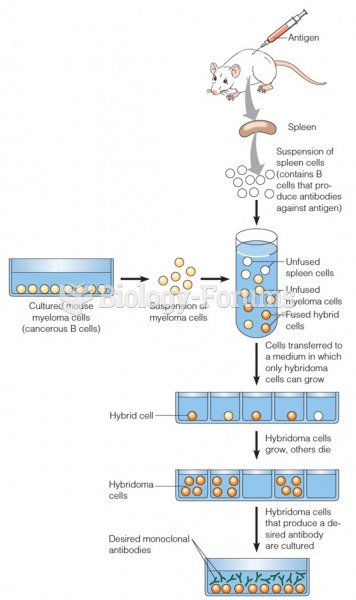|
|
|
The first successful kidney transplant was performed in 1954 and occurred in Boston. A kidney from an identical twin was transplanted into his dying brother's body and was not rejected because it did not appear foreign to his body.
The human body's pharmacokinetics are quite varied. Our hair holds onto drugs longer than our urine, blood, or saliva. For example, alcohol can be detected in the hair for up to 90 days after it was consumed. The same is true for marijuana, cocaine, ecstasy, heroin, methamphetamine, and nicotine.
The first oncogene was discovered in 1970 and was termed SRC (pronounced "SARK").
More than 50% of American adults have oral herpes, which is commonly known as "cold sores" or "fever blisters." The herpes virus can be active on the skin surface without showing any signs or causing any symptoms.
Blood in the urine can be a sign of a kidney stone, glomerulonephritis, or other kidney problems.
 These illustrations show Ellen Craft, a slave with and without a disguise. She dressed “as a disting
These illustrations show Ellen Craft, a slave with and without a disguise. She dressed “as a disting
 These illustrations show Ellen Craft, a slave with and without a disguise. She dressed “as a disting
These illustrations show Ellen Craft, a slave with and without a disguise. She dressed “as a disting





